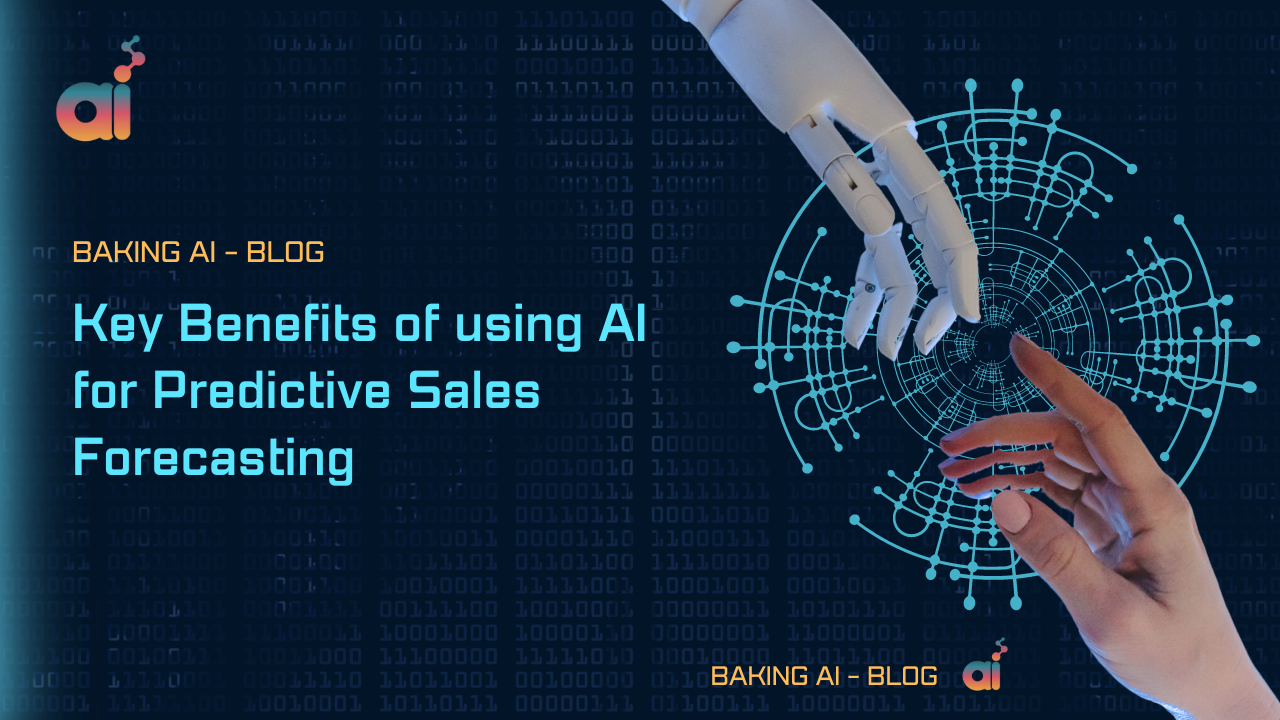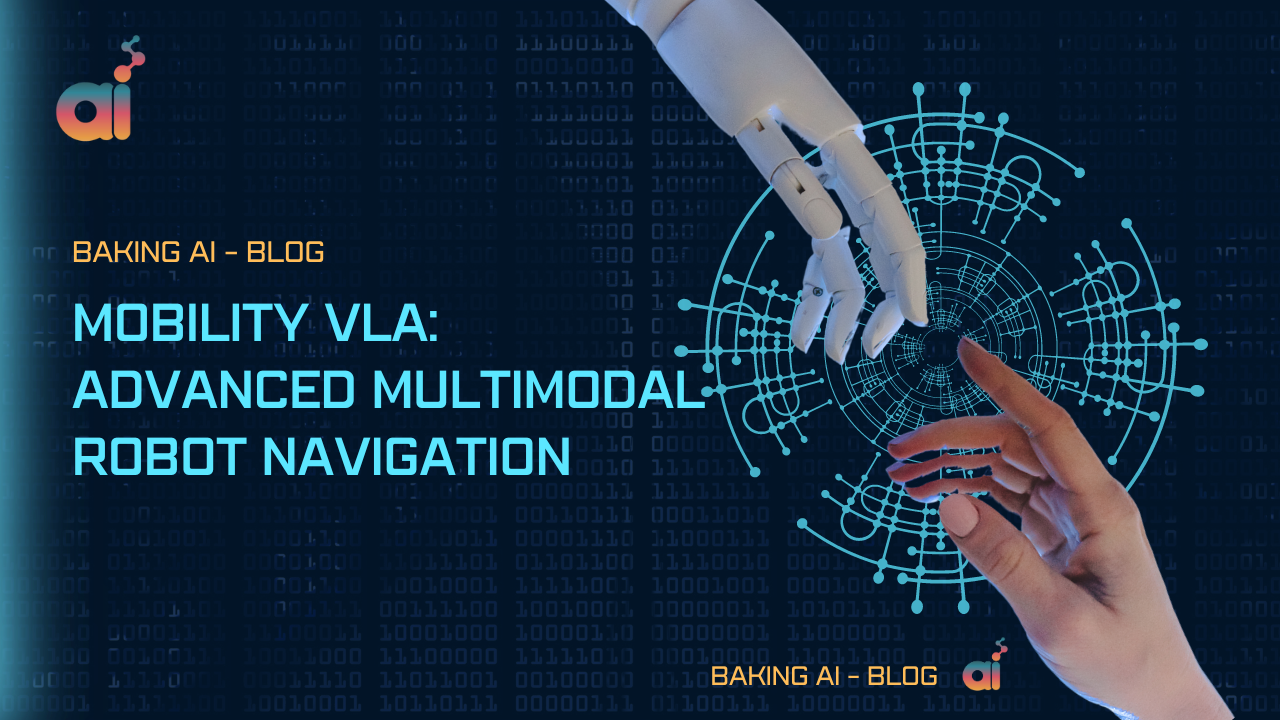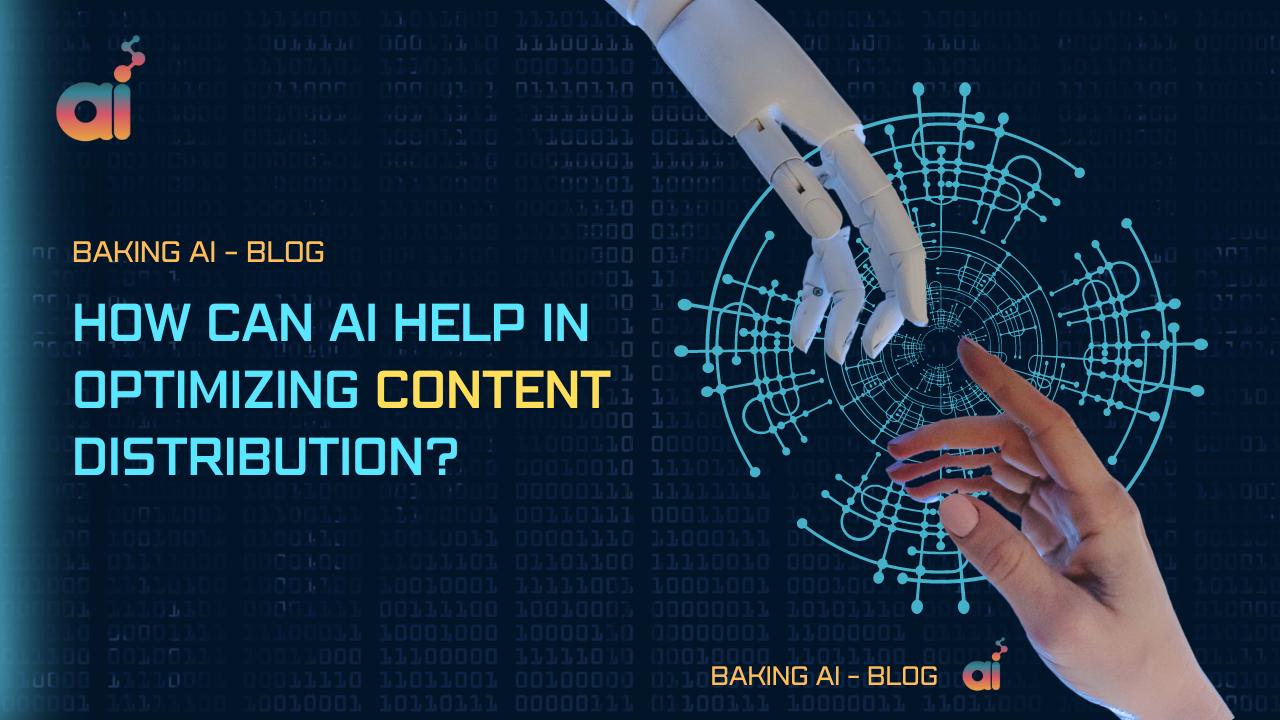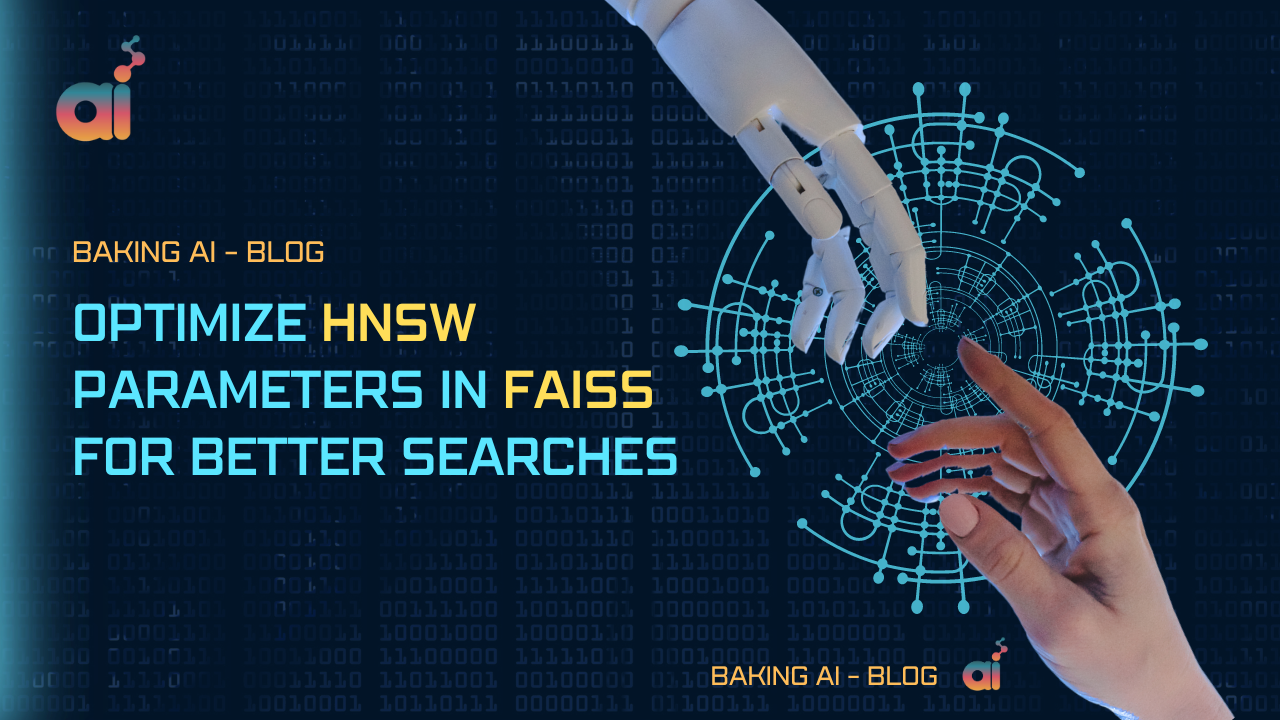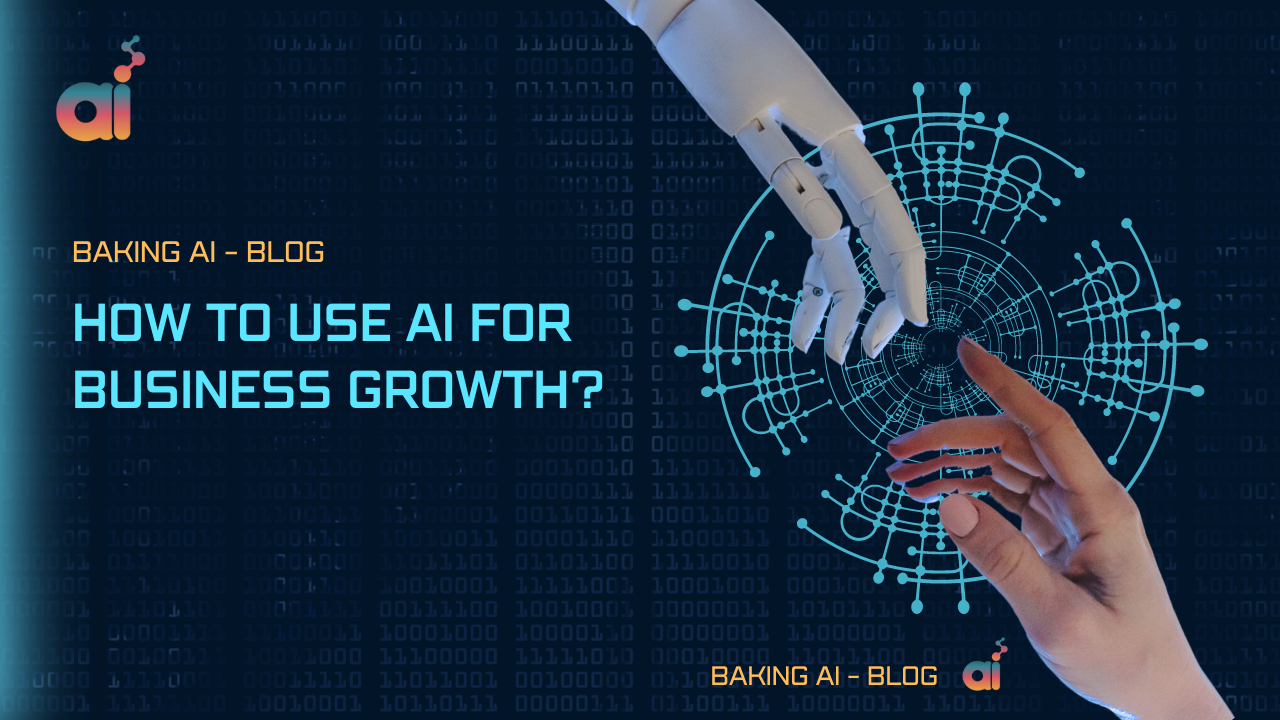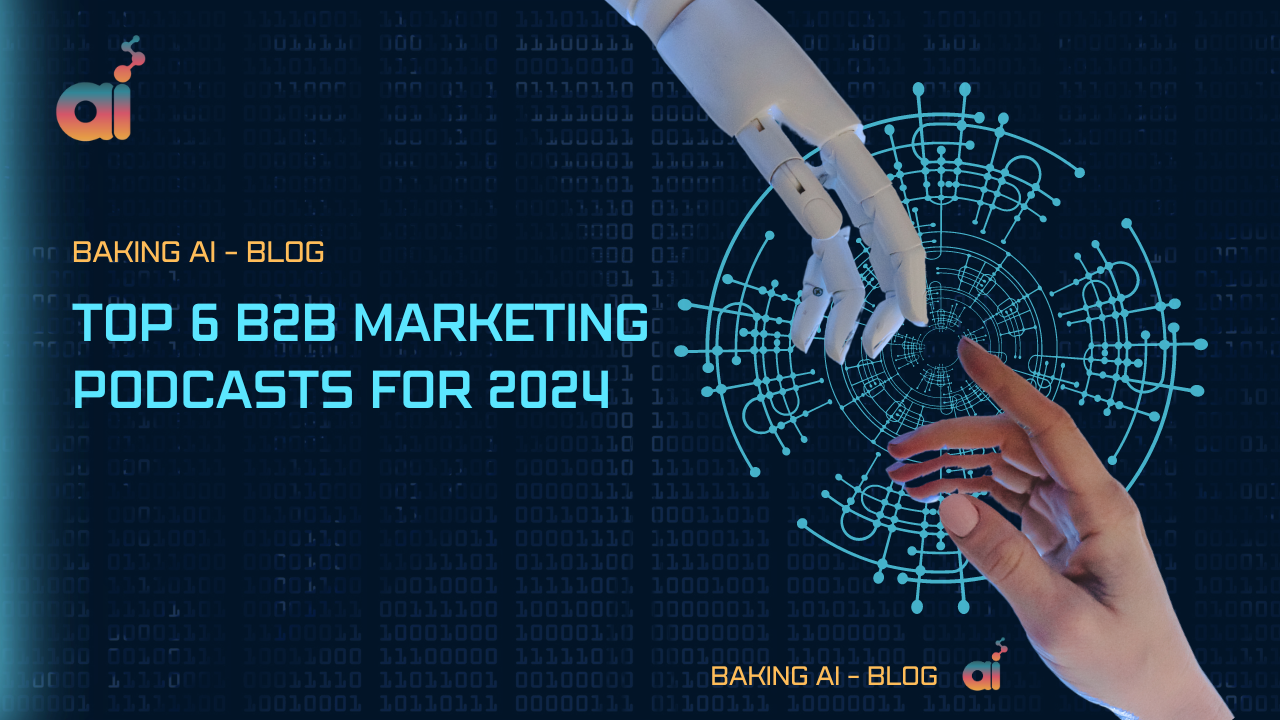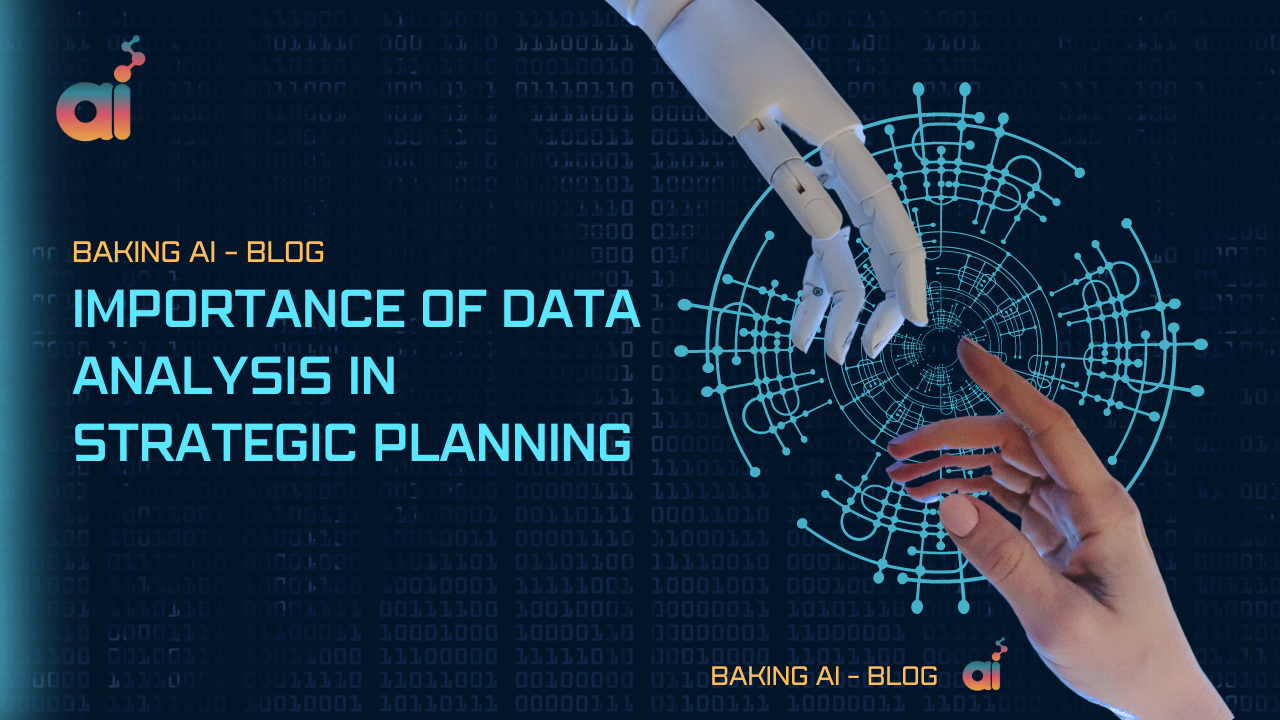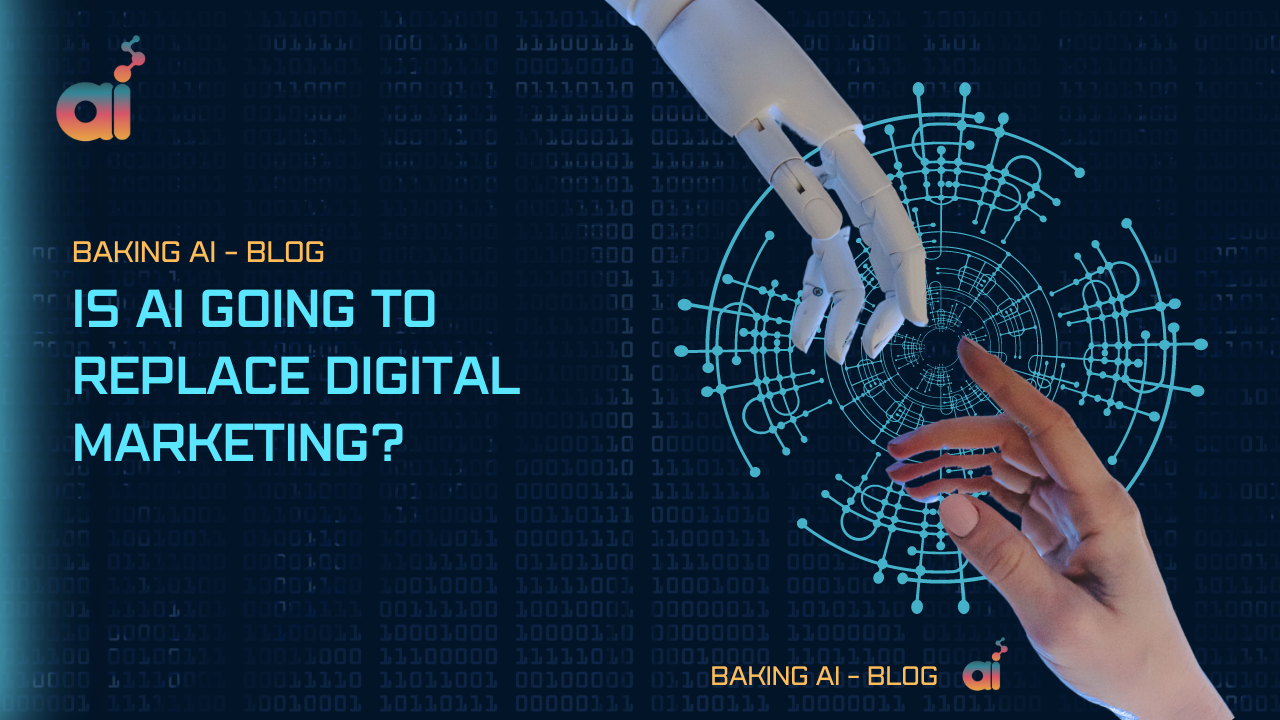Artificial Intelligence (AI) and Machine Learning (ML) are like smart tools that help computers do things that normally need human smarts. They’re changing a lot of industries, including digital marketing. These technologies can help businesses connect better with their customers, make marketing more effective, and get better results. In today’s world, where there’s lots of data and people’s shopping habits are more complicated, AI and ML can help companies understand data better, make marketing more personal, and improve how customers feel about their shopping experience.
What is Artificial Intelligence (AI)?
Artificial Intelligence (AI) is about making machines smart like humans. It helps them do things like thinking, solving problems, learning, understanding languages, and recognizing things. AI comes in two main types: Narrow AI, which is good at specific tasks, and General AI, which tries to be as smart as humans in many areas. In digital marketing, AI helps by using smart systems to study data, do tasks automatically, and make decisions based on data. With AI, computers can handle lots of customer information, find patterns, and give useful insights. In marketing, AI can help in many ways like understanding customers better, targeting them with personalized messages, creating content, using chatbots, and predicting future trends.
What is Machine Learning (ML)?
Machine learning is a part of AI that helps machines learn from data and make decisions without being explicitly programmed. It uses algorithms and statistical models to find patterns in data and make predictions or decisions. In digital marketing, machine learning is used to analyze customer data and improve marketing strategies. By understanding trends and customer behavior, it helps in personalizing content, optimizing marketing campaigns, and predicting future actions. Techniques like clustering, classification, regression, and recommendation systems are commonly used in digital marketing to make these improvements.
How AI and ML are Transforming Digital Strategies?
AI and machine learning are making a big difference in how businesses do digital marketing. Imagine having a super-powered tool that can analyze all your customer information and help you create exactly what each customer wants to see. That’s what AI and machine learning do! With this technology, businesses can design personalized experiences for their customers, target the right people with the right ads, and even answer customer questions with chatbots.
This all leads to happier customers and more sales for businesses. But it’s important to use these tools responsibly, which means being careful with customer data and making sure the technology is fair and unbiased. Overall, AI and machine learning are a game-changer for digital marketing, giving businesses a big advantage in today’s competitive world.
Advancements in AI and ML for Digital Marketing
AI and machine learning (ML) are getting really good at helping marketers! With all the data available these days, AI and ML tools can find important information and trends. This helps marketers understand their customers better, like what content they like and how they prefer to shop. By using this knowledge, marketers can create more relevant experiences for their target audience, which keeps people interested and wanting to buy more.
- Personalization and Targeted Advertising:
Imagine seeing ads and getting recommendations that are actually relevant to you! This is what AI and machine learning help with in marketing. By analyzing information about customers, like what they buy and browse online, these technologies can predict what they might be interested in. This allows companies to show them personalized ads and suggestions, which makes customers happier and more likely to buy something. Targeting the right people with the right message is a powerful way to improve marketing results.
- Customer Experience Optimization:
In the world of business, new tech like AI and ML are making things way better for customers. Companies can now use fancy tools to listen in on what customers are saying online and on social media. This helps them understand what problems customers are having and what they like. With this knowledge, businesses can fix issues, make things smoother for customers, and keep them happy. Research shows that AI chatbots can also be superstars by helping customers in real time and making sure they have a good experience.
Ethical Considerations and Challenges:
AI and machine learning (ML) can be great tools for digital marketing, but there are some things to keep in mind. These technologies use a lot of data, and if that data isn’t carefully checked, it can lead to unfair targeting or even discrimination. Basically, the AI might learn bad habits from the data it’s given. That’s why it’s important for marketers to use AI and ML in a responsible way, and to be clear about how they’re using it.
Impact of AI and ML in Digital Marketing Strategies
AI (Artificial Intelligence) and ML (Machine Learning) play a significant role in boosting digital marketing efforts. Here are several ways in which AI and ML contribute to enhancing digital marketing:
1. Data Analysis and Insights:
AI and ML algorithms can analyse vast amounts of data quickly and efficiently. By processing data from various sources such as customer interactions, social media, website behaviour, and market trends, AI and ML can extract valuable insights. These insights enable marketers to understand customer preferences, behaviours, and patterns, helping them make data-driven decisions and optimize marketing strategies.
2. Personalization and Targeting:
AI and ML enable personalized marketing by leveraging customer data to create tailored experiences. Through predictive analytics, these technologies can determine customer preferences and deliver personalized content, recommendations, and offers. This level of personalization enhances customer engagement, improves customer satisfaction, and increases conversion rates.
3. Customer Segmentation:
AI and ML algorithms can analyse customer data to identify distinct segments based on various characteristics such as demographics, interests, and behaviours. This segmentation helps marketers understand different customer groups and develop targeted marketing campaigns tailored to each segment’s preferences and needs. AI and ML algorithms can be applied to customer segmentation in digital marketing strategies to identify distinct customer groups based on various characteristics. One commonly used algorithm for customer segmentation is the clustering algorithm.
Here’s an overview of how AI and ML algorithms can perform customer segmentation:
- Data Collection: Gather relevant customer data from various sources such as CRM systems, website analytics, social media, and transactional data. This data may include demographic information, purchase history, website behaviour, engagement metrics, and more.
- Data Preprocessing: Clean and preprocess the data to ensure consistency and quality. This step involves handling missing values, removing outliers, and standardizing or normalizing the data.
- Feature Selection: Identify the most relevant features or variables that contribute to customer segmentation. This step helps reduce the dimensionality of the data and focuses on the most influential attributes.
- Algorithm Selection: Choose an appropriate clustering algorithm based on the nature of the data and the desired outcome. Popular clustering algorithms for customer segmentation include K-means, Hierarchical clustering, and Gaussian Mixture Models.
- Training the Model: Apply the selected clustering algorithm to the pre-processed data. The algorithm will analyse the data and group similar customers together based on shared characteristics.
- Evaluation and Validation: Assess the quality and effectiveness of the segmentation results. This step involves evaluating the clustering model based on metrics such as silhouette score, Dunn index, or within-cluster sum of squares. It may also involve comparing the results with domain expertise or known customer segments.
- Interpretation and Profiling: Analyze the resulting customer segments and interpret the characteristics that define each segment. This step helps gain insights into the unique behaviors, preferences, and needs of each segment.
- Implementation and Actionable Insights: Utilize the segmented customer groups to develop targeted marketing strategies. Tailor marketing messages, offers, and content to each segment’s specific needs and preferences. This helps improve customer engagement, increase conversions, and enhance overall marketing effectiveness.
- Continuous Monitoring and Refinement: Monitor the effectiveness of the segmentation model over time and refine the segments based on new data and evolving customer behaviors. This iterative process ensures that the customer segments remain relevant and up-to-date.
It’s important to note that the specific implementation of AI and ML algorithms for customer segmentation may vary depending on the data available, business objectives, and the complexity of the customer base. Customization and finetuning of the algorithms may be necessary to achieve optimal segmentation results for a particular digital marketing strategy
4. Chatbots and Virtual Assistants:
AI-powered chatbots and virtual assistants provide automated, real-time support to customers. These conversational agents can answer common customer queries, provide product recommendations, and assist with transactions. By offering instant and personalized assistance, chatbots and virtual assistants enhance the customer experience and improve customer satisfaction.
5. Content Generation and Optimization:
AI and ML can aid in content creation and optimization. Natural Language Processing (NLP) algorithms can generate content, such as blog articles or social media posts, based on specific keywords or themes. Additionally, AI and ML algorithms can analyze content performance and user engagement to optimize content strategy, improve SEO, and increase content relevance.
6. Ad Targeting and Optimization:
AI and ML algorithms optimize advertising campaigns by analyzing data and identifying patterns that lead to successful outcomes. These algorithms can dynamically adjust ad placements, targeting, and bidding strategies in real time to maximize conversions and ROI. AI-powered ad platforms can also identify high-value customer segments and optimize ad content for better engagement.
7. Predictive Analytics:
AI and ML techniques enable predictive analytics, which forecast future customer behaviors, trends, and market dynamics. By analyzing historical data, these technologies can anticipate customer preferences, identify potential leads, and optimize marketing strategies accordingly. This helps businesses stay ahead of the competition and proactively address customer needs.
8. Fraud Detection and Security:
AI and ML algorithms can detect fraudulent activities and enhance security measures in digital marketing. They can analyze patterns, anomalies, and user behavior to identify potential fraud or security threats. By preventing fraudulent transactions or activities, businesses can protect their customers and maintain a trustworthy brand reputation.
By leveraging AI and ML technologies, businesses can gain a competitive edge in digital marketing. These technologies enable marketers to make data-driven decisions, deliver personalized experiences, optimize advertising efforts, and improve overall marketing performance. However, it’s important to ensure the ethical use of AI and ML, address privacy concerns, and continuously monitor and refine these technologies to maximize their benefits in the digital marketing landscape.
Benefits and challenges of implementing AI and ML in Digital Marketing
1. Enhanced Personalization:
AI and ML algorithms can analyse vast amounts of customer data to understand individual preferences, behaviours, and purchase history. This enables businesses to deliver personalized content, product recommendations, and offers to each customer, creating a more tailored and engaging experience. Personalization leads to higher customer satisfaction, increased conversions, and improved customer loyalty.
2. Improved Customer Segmentation:
AI and ML algorithms can analyse customer data to identify distinct segments based on various characteristics such as demographics, interests, and behaviours. This enables businesses to better understand their target audience and develop targeted marketing campaigns for each segment. Effective segmentation leads to more precise targeting, improved messaging, and higher campaign effectiveness.
3. Automation and Efficiency:
AI and ML technologies automate repetitive and time-consuming tasks in digital marketing, such as data analysis, reporting, and campaign optimization. This frees up marketers’ time, allowing them to focus on strategic initiatives and creative aspects of marketing. Automation also improves efficiency, reduces human errors, and enables real-time adjustments to campaigns for better results.
4. Advanced Data Analysis and Insights:
AI and ML algorithms can analyze complex datasets and extract valuable insights from large volumes of data. These technologies can identify patterns, trends, and correlations that humans may miss, leading to more informed decision-making. AI-powered analytics provide marketers with actionable insights, helping them
5. Enhanced Customer Support:
AI-powered chatbots and virtual assistants provide instant and personalized customer support. These conversational agents can answer common queries, assist with transactions, and provide product recommendations. By offering round-the-clock assistance and resolving customer issues in real-time, businesses can improve customer satisfaction and build stronger relationships.
6. Real-time Optimization:
AI algorithms can continuously monitor and analyse campaign performance in real-time. This allows marketers to make instant adjustments to optimize campaigns based on changing market conditions, customer behaviour, or competitor activities. Real-time optimization improves the effectiveness and ROI of marketing efforts. improves ad relevance, increases click-through rates, and maximizes ROI on advertising spend.
7. Scalability and Adaptability:
AI systems can handle large volumes of data and adapt to changing marketing trends and customer preferences. They can scale to accommodate growing data sets and customer bases, providing consistent and reliable insights and automation.
8. Competitive Advantage:
By leveraging AI in digital marketing, businesses can gain a competitive edge. AI enables marketers to stay ahead of the curve by quickly adapting to market changes, identifying new opportunities, and delivering personalized experiences that resonate with customers.
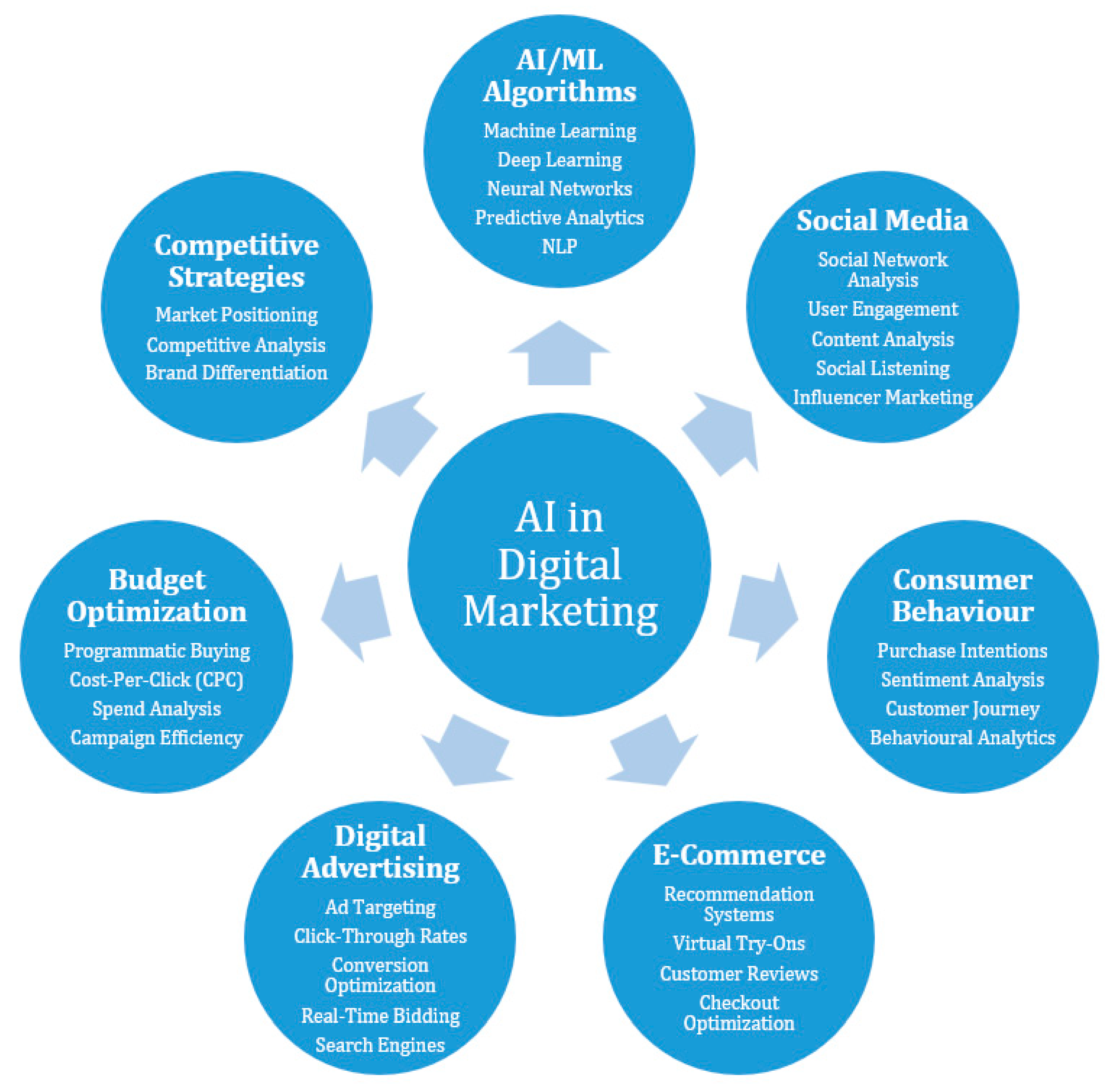
Challenges of implementation of AI and ML in Digital Marketing
While artificial intelligence (AI) and machine learning (ML) offer significant benefits to digital marketing, there are also challenges that organizations may encounter. Here are some common challenges associated with the use of AI and ML in digital marketing.
1. Data Quality and Quantity:
AI and ML algorithms require large volumes of high-quality data to provide accurate insights and predictions. Ensuring the availability and reliability of relevant data can be challenging, especially for smaller businesses or industries with limited data resources.
2. Data Privacy and Security:
The use of AI and ML involves collecting and analyzing customer data, which raises concerns about data privacy and security. Organizations must comply with data protection regulations and implement robust security measures to safeguard customer information from unauthorized access or breaches.
3. Algorithm Bias and Interpretability:
AI and ML algorithms can be susceptible to biases present in training data, which can result in biased recommendations or decisions. Additionally, the inner workings of some complex ML models may lack interpretability, making it difficult to understand how decisions are being made or identify potential biases.
4. Skill Gap and Talent Acquisition:
Implementing AI and ML in digital marketing requires skilled professionals with expertise in data science, AI algorithms, and analytics. However, there is a shortage of professionals with these specialized skills, making it challenging for organizations to find and hire the right talent.
5. Cost and Infrastructure:
Developing and implementing AI and ML solutions can be resource-intensive. It requires investment in infrastructure, computational power, and specialized software tools. Additionally, organizations may need to allocate budgets for ongoing maintenance, updates, and training to keep up with the evolving AI and ML technologies.
6. Ethical Considerations:
The use of AI and ML in digital marketing raises ethical considerations, such as the responsible use of customer data, transparency in algorithmic decision-making, and addressing potential biases. Organizations must ensure ethical practices are followed and prioritize the trust and privacy of their customers.
7. Integration and Adoption Challenges:
Integrating AI and ML systems with existing marketing technologies and workflows can be complex. It may require changes to existing processes and systems, as well as employee training to effectively utilize AI and ML tools. Resistance to change and lack of organizational readiness can pose challenges to successful adoption.
8. Overreliances on Automation:
While automation can improve efficiency, there is a risk of overreliance on AI and ML systems without human oversight. It is crucial to strike the right balance between automated processes and human intervention to ensure accurate decision-making and maintain a human touch in customer interactions.
9. Lack of Industry Standards:
The field of AI and ML is rapidly evolving, and there is a lack of standardized practices and benchmarks for evaluating and comparing different solutions. This can make it challenging for organizations to select the most appropriate AI and ML technologies for their specific marketing needs. Despite these challenges, organizations that address these issues proactively and strategically can harness the power of AI and ML in digital marketing to gain a competitive edge and deliver personalized and impactful customer experiences.

Comparing different aspects of AI and ML in Digital marketing
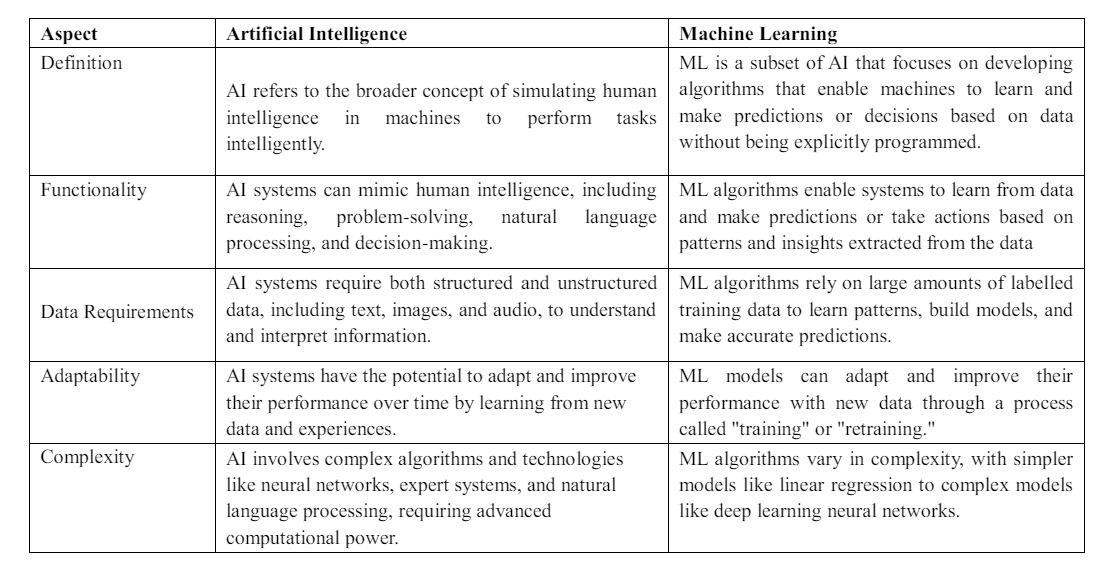
Conclusion
AI and ML have greatly changed digital marketing by allowing businesses to personalize experiences, improve campaign efficiency, and gain better results. They help in understanding customer preferences, predicting behavior, and delivering tailored content, leading to increased customer satisfaction and loyalty. These technologies also automate repetitive tasks, freeing up time for strategic planning and creative work. However, challenges like data privacy and algorithm bias must be addressed. Despite these challenges, the future of AI and ML in digital marketing looks promising, with opportunities for hyper-personalization, voice search, predictive analytics, and more. Businesses that embrace these technologies will be better positioned for success in the digital marketing world.
Hungry for Results? Get a Slice of ROI with Baking AI.
We’re your one-stop shop for all things AI.
Turn your data into delicious success stories. From targeted marketing campaigns to streamlined operations, Baking AI helps you achieve measurable Return on AI (ROAI) across diverse use cases.
Join our 50+ satisfied customers and see the results for yourself!


